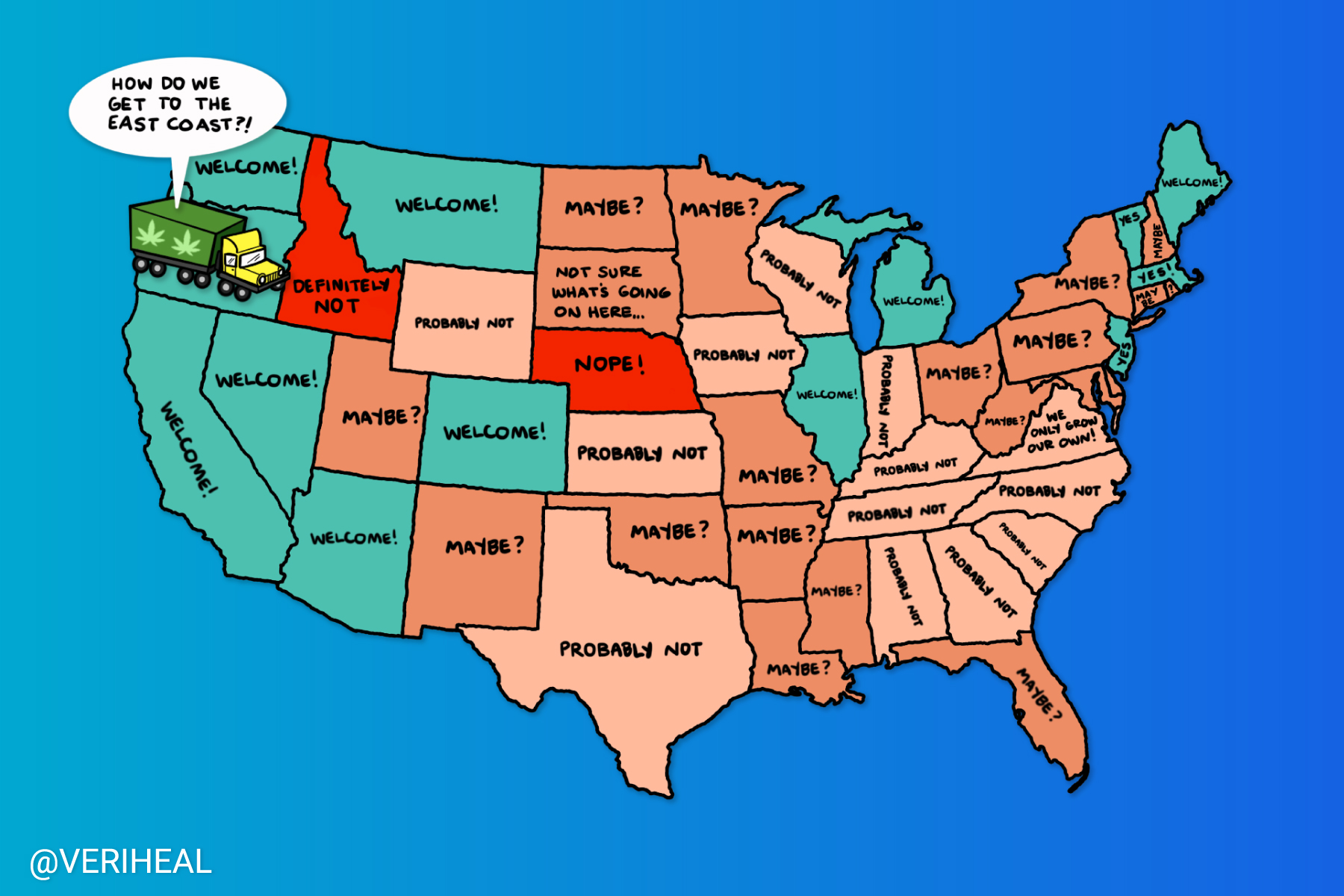The Marijuana Opportunity Reinvestment and Expungement (MORE) Act has recently passed the US House of Representatives, and it represents a huge milestone in the federal government’s approach to cannabis. It does not, however, represent legalization in its entirety. There is still much more that needs to be done beyond once it’s signed into law. The MORE Act would remove cannabis from the Federal Controlled Substances Act, a huge step forward. Cannabis has long been regarded as a Schedule I narcotic, despite many scientists and lawmakers agreeing that that classification isn’t correct and is based on misinformation. The classification of cannabis as Schedule I has been one of the toughest barriers to legalization, so if the MORE Act passes, the walls are likely to come down. Of course, first, it must pass the Senate, and many still remain skeptical with the new Biden administration. So, should we give up hope of seeing legalization at the federal level? Perhaps not.
Interstate Commerce Another Reason to Legalize
This past September, a group of cannabis activists and cannabis industry representatives formed the Alliance for Sensible Markets. The primary goal of the organization is to unite the states where cannabis has already been legalized to allow for legal commerce between them. At present, it is not legal to transport cannabis across state lines. Even though the activity is fairly low risk if both states have legalized cannabis, it’s still very much prohibited by law. The risk gets higher, though, if you’re trying to sell cannabis outside of your own state. Even organizations that have been licensed to sell cannabis legally can’t do this without violating federal law. That means that even California and Oregon, two progressive and contiguous states where cannabis is legal, can’t engage in trade across their shared border.
That’s what the Alliance for Sensible Markets hopes to change.
Oregon’s Governor Kate Brown has already gotten on board with this idea and has signed a bill that would allow legal cannabis businesses in Oregon to export cannabis to other states where the substance has been legalized—not just contiguous states, like Washington or California, but any state in the US where cannabis is legal. However, Governor Brown is the ONLY state governor so far to have accepted this idea. And with only one governor open to the possibility of commerce across state lines, there is no avenue for trade. At least one more governor will have to be convinced.
Why You Should Get Your Medical Marijuana Card
Veriheal has satisfied millions of patients nationwide by giving them access to these benefits
- Larger purchase limits
- Peace of mind
- Enhanced legal protection
- Access to higher potency strains
- Save up to 25% on cannabis purchases
- Skip the line at the dispensary
Logistics Are a Bit Complicated
Why haven’t other governors accepted the ideas put forth by the Alliance for Sensible Markets? We are accustomed to the fact that Oregon is one of the very most progressive states when it comes to drug policy reform. But states such as California and Colorado are also forerunners when it comes to adopting new cannabis laws, and they have yet to move forward with this idea.
The biggest logistical problem is that of transportation. For Oregon and California to engage in commerce across their shared border would be fairly straightforward. But if Oregon wished to trade with any state east of the Mississippi River, they would have a job on their hands, because they would have to pass through states where cannabis is still illegal.
If a federal law could be passed that would permit that sort of transportation of cannabis between states where the substance is legal, it would bring us a lot closer to achieving some of the goals of federally legalized cannabis. People living in states where cannabis doesn’t grow as well outdoors would have more access to cannabis, and the state by state economic siloes of the cannabis industry would be broken down in favor of a more nationwide economic growth.
Either way, federal cannabis legalization can’t be too much farther off, and it will be fascinating to see what it looks like when it arrives.
Author, Share & Comments
















